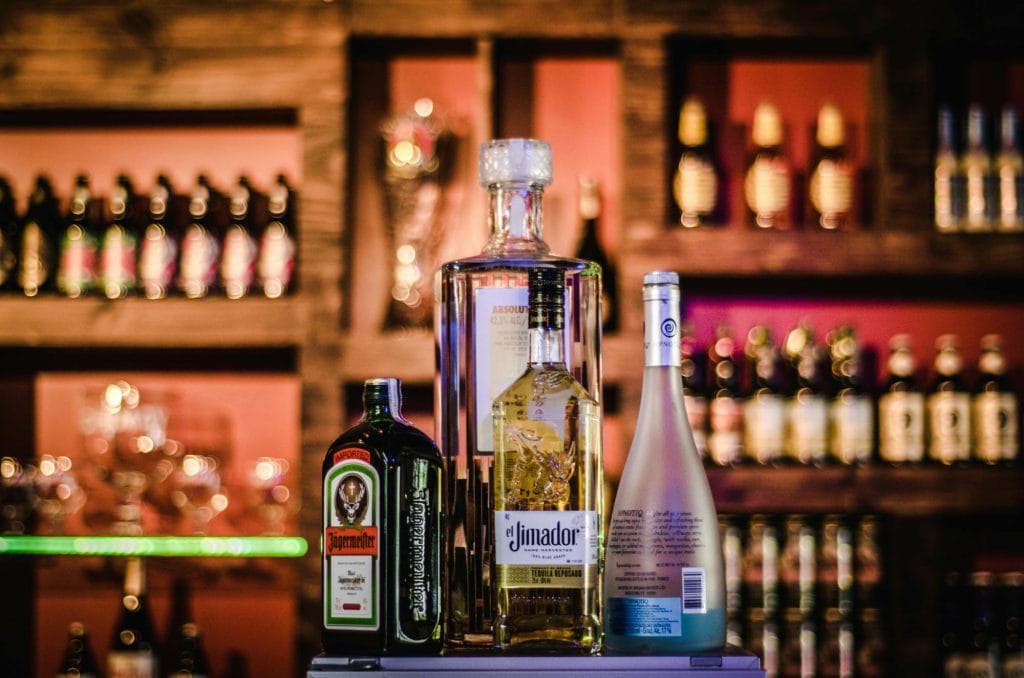How to Get Alcohol in Muslim Countries A Traveler s Guide
Traveling to Muslim countries can be a richly rewarding experience, offering a unique blend of culture, history, and tradition. However, for travelers accustomed to enjoying a casual drink, navigating the rules around alcohol can be confusing. While many Muslim-majority nations have strict laws regarding alcohol due to religious beliefs, others have more relaxed regulations. This guide will help you understand the social norms and legalities of obtaining alcohol in these regions.
Before diving into where and how you can find alcohol, it’s important to understand the cultural context. In Islam, consuming alcohol is generally prohibited, and this influences the social norms in many Muslim-majority countries. Public consumption is often frowned upon, and discretion is advised.
Even if alcohol is available, it’s crucial to respect the local customs and traditions. Many residents may abstain from drinking due to religious beliefs, and it’s important to be considerate. Avoid public intoxication and be aware of your surroundings to ensure you’re not offending anyone. Understanding the local social etiquette can greatly enhance your travel experience and prevent misunderstandings. Always observe how locals behave in social settings and follow their lead when it comes to consuming alcohol.
Travelers should always be aware of the cultural sensitivities surrounding alcohol consumption. In many Muslim countries, even if alcohol is legally available, it is considered a private matter. Public displays of drinking, or discussing alcohol openly, may not be well-received. Consider the impact your actions might have on local perceptions and adjust your behavior accordingly. Engaging with locals respectfully and showing appreciation for their culture can lead to richer, more meaningful travel experiences.
Alcohol laws in Muslim countries often stem from Sharia law, which prohibits the consumption of intoxicants. However, interpretations of these laws vary widely, resulting in different regulations across countries. In some nations, alcohol laws are strictly enforced with severe penalties for violations, while in others, more lenient approaches are taken. Understanding these variations is crucial for travelers to avoid legal issues. It’s also important to recognize that local laws may be subject to change, so staying informed about current regulations before and during your trip is essential.
Why Alcohol is Restricted in Muslim Country
Islamic law (Sharia) prohibits Muslims from consuming alcohol, which is why many Islamic countries place strict limits or total bans on its sale. However, not every Muslim-majority country enforces this in the same way. Many nations balance traditional beliefs with tourism needs, creating a system that allows alcohol for non-Muslims in certain areas.
The Different Levels of Restriction
- Total Prohibition:
Countries like Saudi Arabia, Kuwait, and Afghanistan completely ban alcohol. Bringing it into the country, drinking privately, or even possessing it can result in harsh penalties such as fines, deportation, or jail time. - Partial Restriction:
In countries such as the Maldives, Brunei, and Iran, alcohol is prohibited for locals but may be available for non-Muslims in tourist resorts or private clubs. - Regulated Availability:
Popular destinations like Indonesia, Morocco, Turkey, Egypt, Jordan, and the United Arab Emirates allow alcohol under regulation. In these places, you’ll find bars, restaurants, and hotels with licenses to serve alcohol, often catering to tourists.
Understanding where your destination stands on this scale is crucial before you travel
where you might find alcohol in Muslim countries.

In many Muslim countries, international hotels and resorts are the most reliable places to find alcohol. These establishments often cater to foreign tourists and may have licenses to serve alcohol to guests. It’s common to find bars and restaurants within these venues offering a selection of alcoholic beverages. Visitors can enjoy drinks in a controlled environment where local laws and customs are respected. Furthermore, hotel staff are usually well-informed about local regulations and can offer guidance to ensure a respectful and enjoyable experience.
Some countries allow licensed restaurants and bars to serve alcohol. These establishments are usually located in major cities or tourist areas. It’s wise to check in advance whether the restaurant or bar has a license, as unlicensed venues can face heavy penalties. Licensed venues often provide a range of international and local drinks, catering to the diverse tastes of travelers. Additionally, these settings offer an opportunity to interact with locals and other travelers, fostering a cultural exchange over a shared meal or drink.
Many international airports have duty-free shops where travelers can purchase alcohol upon arrival. This is often a convenient option as it allows you to have your own supply during your stay. Dutyfree shopping can be a costeffective way to enjoy your preferred beverages without worrying about local availability. However, it’s important to be mindful of the legal limits on alcohol importation, which can vary by country. Travelers should ensure they comply with these regulations to avoid any issues upon entering the country.
In some Muslim countries, there are government-sanctioned stores or private shops with special licenses to sell alcohol to non-Muslims. These stores may have limited hours and require proof of non-Muslim identity, such as a passport. It’s essential to research the locations and operating hours of these stores before your trip. Shopping in these stores can also provide an opportunity to explore local products and brands that may not be available elsewhere. Always be prepared to show the necessary identification to ensure a smooth purchasing experience.
The UAE is known for its liberal approach to alcohol,
particularly in Dubai and Abu Dhabi. Alcohol is available in licensed hotels, restaurants, and bars. Non-Muslim residents can also obtain a liquor license for home consumption. The cosmopolitan nature of these cities allows for a wide range of international drinks and dining experiences. However, it’s crucial to remember that public drunkenness and drinking in unauthorized areas are strictly prohibited. Visitors should remain respectful and adhere to local laws to ensure a pleasant stay.
Turkey has a more relaxed attitude towards alcohol compared to other Muslim countries.
Alcohol is widely available in restaurants, bars, and shops. However, public drunkenness is not tolerated. The country’s vibrant nightlife and dining scene offer ample opportunities to enjoy local wines and spirits. In rural areas, the availability of alcohol might be more limited, but the warm hospitality and rich culture make up for it. Always remember to be respectful in public spaces, as cultural norms regarding alcohol consumption may vary.
In Morocco, alcohol is available in licensed hotels, restaurants, and bars.
Supermarkets in larger cities may also sell alcohol, but it’s often kept discreetly. The country offers a unique blend of traditional and modern influences, allowing travelers to enjoy Moroccan wines and spirits. While alcohol is accessible, it’s important to be mindful of cultural norms and avoid public consumption. Exploring local non alcoholic beverages, such as mint tea, can also enhance your cultural experience in Morocco.
In Indonesia, particularly in Bali, alcohol is widely available due to the island’s tourist-driven economy. In more conservative regions, availability may be limited. Bali’s vibrant tourism industry ensures a wide range of international and local alcoholic beverages for travelers. However, it’s important to respect the cultural and religious beliefs in more conservative areas, where alcohol consumption may be less accepted. Travelers are encouraged to explore the diverse cultural offerings and local traditions across the archipelago.
Malaysia has a mixed approach. Alcohol is available in bars and restaurants in urban areas,
but it’s less common in rural and conservative regions. The country’s multicultural society offers a variety of dining experiences where alcohol can be enjoyed. Visitors should be aware of regional differences in attitudes towards alcohol and adapt accordingly. In areas with strict regulations, exploring local non-alcoholic options can provide a deeper appreciation of Malaysia’s rich culinary heritage.
Saudi Arabia has some of the strictest alcohol laws.
The sale and consumption of alcohol are entirely prohibited, and violators can face severe penalties. Travelers are advised to adhere strictly to local laws. The country offers a wealth of cultural and historical experiences that can be enjoyed without alcohol. Visitors should focus on exploring the rich heritage and traditions, respecting local customs at all times. Understanding and complying with local regulations is essential for a safe and respectful visit.
Even in countries where alcohol is available, it’s important to be discreet. Avoid drawing attention to your drinking habits and always respect local laws and customs. Discretion ensures that you can enjoy your travels without causing offense or encountering legal issues. Being mindful of your surroundings and the company you are in can help you gauge the appropriate level of discretion. It’s always better to err on the side of caution when it comes to alcohol consumption in unfamiliar settings.
Before traveling, research the specific alcohol laws of the country you’re visiting. Laws can change, and being informed is the best way to avoid any legal issues. Understanding the local regulations will help you plan your trip effectively and ensure a smooth experience.
Keeping up with the latest travel advisories and legal updates is also recommended. This preparation will allow you to enjoy your travels confidently, knowing you are respecting the laws and customs of the destination.
During Ramadan Alcohol may have strict regulation
many Muslim countries impose stricter regulations on alcohol, even in places where it’s usually available. Be mindful of suchperiods and plan accordingly. Observing local customs during religious holidays demonstrates respect and cultural sensitivity.
Travelers should research the timing and customs associated with Ramadan and other significant holidays. Being aware of these practices will allow you to engage more deeply with the local culture and traditions.
In countries where alcohol is less accessible, consider enjoying the local nonalcoholic beverages. Many Muslim countries have rich traditions of tea and coffee culture, offering unique and delicious alternatives. Exploring these options can enhance your cultural experience and introduce you to new flavors.
Local nonalcoholic drinks often have historical and cultural significance, providing insight into the region’s heritage. Embracing these alternatives can lead to a more authentic and enriching travel experience.
Navigating the availability of alcohol in Muslim countries requires a mix of respect, discretion, and understanding of local laws. By being informed and respectful, travelers can enjoy their journeys while honoring the cultures and traditions of the countries they visit. Whether you’re sipping a cocktail in a high-end hotel in Dubai or enjoying a traditional Moroccan mint tea, remember that the true essence of travel lies in embracing new experiences and cultures. Engaging with local traditions and customs enriches your travel experience and fosters greater cultural understanding.
Conclusion How To Get Alcohol in Muslim Contries
Traveling through Muslim countries offers some of the most unique cultural experiences in the world — from sacred mosques and colorful markets to incredible food and warm hospitality. While finding alcohol can sometimes be challenging, it’s absolutely possible to enjoy a drink responsibly if you understand and respect the local laws.
Remember, each country — and sometimes each region — has its own approach to alcohol. In places like Turkey, Morocco, or Indonesia, you can easily find licensed bars and hotels serving drinks. In contrast, countries like Saudi Arabia or Brunei enforce strict bans. Knowing the difference before you go will help you avoid misunderstandings and ensure a smooth trip.
The golden rule is simple: respect comes first. Always drink in licensed venues, never in public, and be aware of religious observances like Ramadan. By following local customs, you not only stay safe but also show appreciation for the culture that’s welcoming you.
Read best bar in prawirotaman Street
